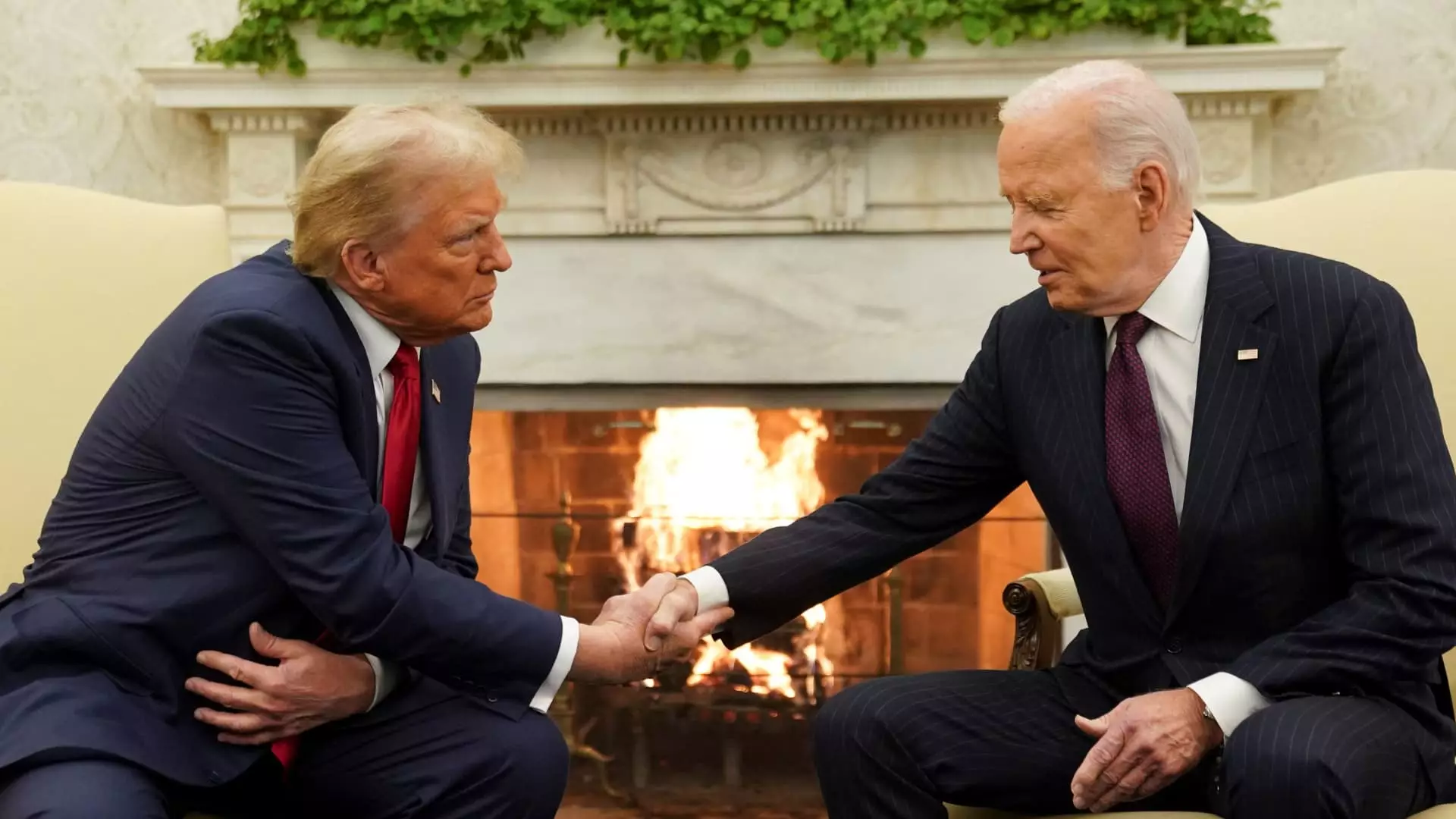Investors contemplating the potential implications of presidential elections on the stock market often find themselves ensnared in a web of uncertainty. A historical examination reveals a wide array of outcomes following past elections in the United States. For instance, after President Joe Biden’s victory in 2020, the S&P 500 index surged by over 42% within the following year. This data, compiled by Morningstar Direct for CNBC, is indicative of one historical trend but fails to present a uniform narrative.
Conversely, the stock market reacted unfavorably to other presidential elections. The year following Jimmy Carter’s election in 1976 saw a decline of approximately 6% in the S&P 500, showcasing a stark contrast to the post-Biden rally. Similarly, following the re-election of Dwight Eisenhower in 1956, the market exhibited similar negative behavior. Such variability illustrates that the effects of presidential elections on stock performance are far from consistent.
The link between political leadership and stock market performance is often debated in financial circles. Ronald Reagan’s initial election in 1980 led to a modest gain of 0.6% in the S&P 500, but his second win in 1984 resulted in a robust increase of nearly 19%. This disparity highlights the complexities of correlating political transitions with market fluctuations.
Notably, Jude Boudreaux, a certified financial planner from The Planning Center, maintains that there is no discernible pattern when it comes to market performance in election years. He asserts that “election years aren’t that different from a typical year in the stock market,” emphasizing the inherent volatility and unpredictability that characterize capital markets. This perspective suggests that while elections may serve as a catalyst for market movements, the degree of impact is contingent upon numerous external factors beyond just the political climate.
Investor behavior often intensifies prejudice against uncertainty, leading them to seek narratives that attempt to predict market direction. Dan Kemp, the global chief investment officer of Morningstar Investment Management, underscores this tendency, noting that many investors are prone to alter their portfolios in response to perceived risks after elections. This reaction, however, may not be as beneficial as one would hope.
Boudreaux doesn’t advocate for sweeping portfolio changes based solely on election outcomes, a sentiment echoed by Kemp. The underlying message is clear: although political events can stir market sentiment, they do not furnish reliable forecasts for stock performance. This emphasizes the notion that investors should maintain a long-term perspective and avoid overreacting to short-term political shifts.
The relationship between presidential elections and stock market performance is multifaceted and laden with exceptions. Investors should practice patience and restraint, understanding that while political winds can influence market conditions, they should not dictate investment strategy. Embracing the inherent volatility of the market can empower investors to make more informed and rational decisions, rather than succumbing to the whims of uncertainty that accompany electoral cycles. In this fluid environment, a grounded approach is essential for navigating the complexities of investment.


Leave a Reply